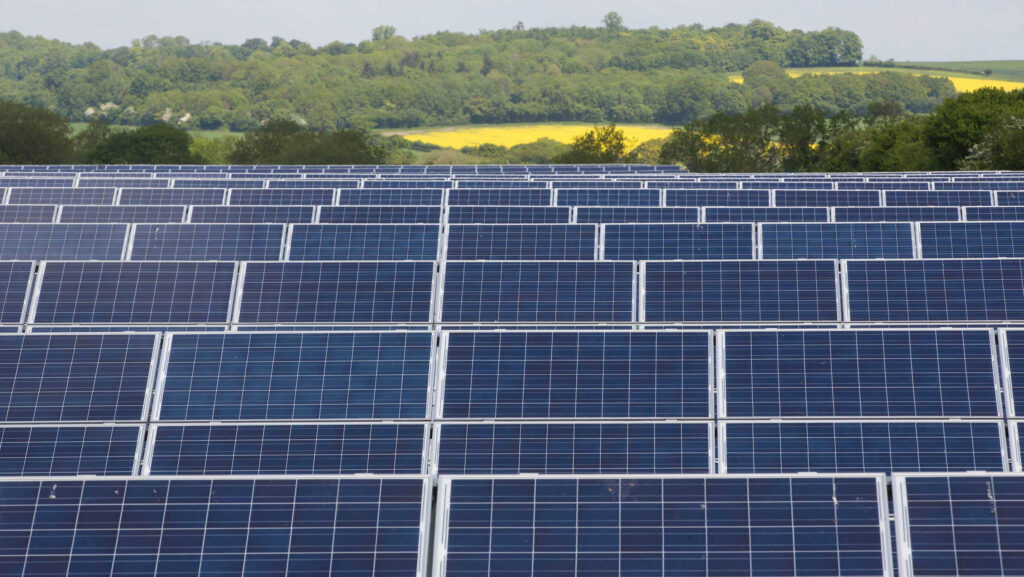Call to protect farmland from mega solar expansion
 © Tim Scrivener
© Tim Scrivener A new report from countryside charity CPRE warns that nearly a third of England’s mega solar farms are being built on the country’s highest-quality farmland, raising urgent concerns over food security and land use.
The report calls for government action to prioritise rooftop solar and protect productive agricultural land.
CPRE’s analysis shows that 59% of land used by England’s largest operational solar developments is classified as “most productive” (BMV Grades 1-3b), with one third rated “best and most versatile” (BMV Grades 1-3a).
See also: Rebekah Housden: Solar farms are a threat to farming life
Despite planning policies that aim to preserve farmland, developers are said to be targeting profitable, grid-accessible sites, often ignoring land quality.
“The geographic spread of solar energy generation on farmland is uneven, dependent more on the ease of connection to the grid and the profit margin for developers than a location determined strategically by holistic energy planning or that makes sense to communities,” CPRE stated.
CPRE’s Shout from the rooftops report highlights that rooftops, car parks, and brownfield sites could generate up to 117GW of solar power – more than enough to meet national targets without sacrificing vital farmland.
The group is urging the government to commit to at least 60% rooftop solar by 2035.
North Yorkshire tenant farmers Emma Sturdy, who is set to lose about half of her farm to a solar development, supported the report.
“A great piece of work from CPRE which does not surprise me at all,” she posted on her website, saveoldmaltoncountryside. “Developers and landowners do not care for land quality when there’s money to be made… legislation must be passed asap to protect our best farmland from solar.”
Tenant Farmers Association chief executive George Dunn echoed these concerns. “The rush to cover large areas of farmland with solar panels is a consequence of an outdated framework of grid connections,” he said.
“We could be much more efficient by both generating and using electricity locally, particularly on rooftops.”
Mr Dunn met with Defra farming minister Daniel Zeichner on 10 July to press for a unified ministerial position.
He added: “Tenant farmers must not be the collateral damage from a policy which currently seems to be prepared to advance the idea of ‘green energy’ at any cost.
“If it is necessary for solar panels to be installed on farmland subject to an agricultural tenancy, after full consideration of all other opportunities, tenant farmers must be compensated in a way which reflects their real loss of their business, their home and livelihood.
“The current arrangements fall far short of providing adequate levels of compensation.”
